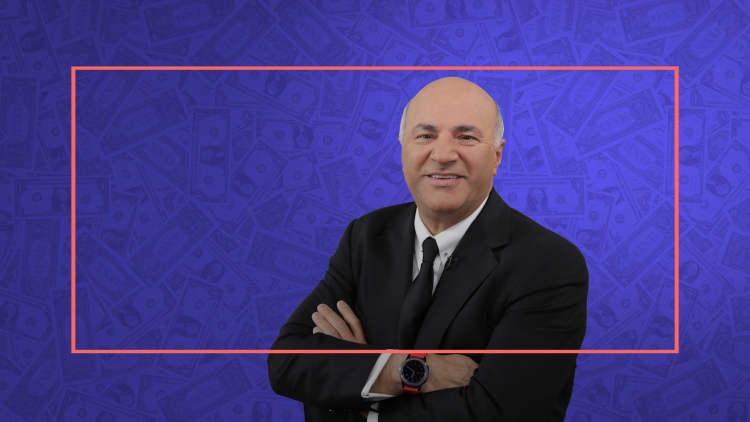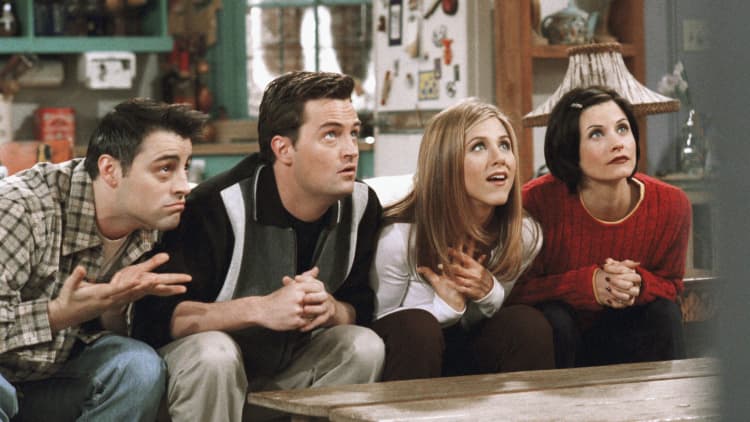Arguing about who does the dishes. Being too controlling. Not spending enough time with each other. Difficult in-laws. Infidelity.
There are so many reasons why a relationship can go sour. But the biggest relationship roadblocks are money-related.
Having worked in financial therapy for more than 16 years, and with more than 500 couples, I've found that the single biggest mistake couples make in their relationships is imposing a "right and wrong" framework on financial disagreements.
Ah, money...it can bring out the worst in us
When couples reach out to me for financial counseling, there's often a not-so-subtle subtext to their request: "Tell my partner I'm the one who's right, and that they should do what I say."
This attitude can be incredibly destructive.
To be fair, difference is the norm when it comes to money and relationships. Nearly 73% of individuals have money management styles that are different from their partner's, according to a 2016 survey from financial services company Ameriprise.
But here's the thing: We're hardwired to believe that money is essential to survival, so having opposing views can feel very threatening. As a result, we often feel the impulse to fall into a zero-sum approach: "I'm going to prove I'm right, and you'll have to do it my way."
Meet Mary and Matt
Mary often sends Matt links to articles about why it's important to save. She complains about how behind they are in their financial goals and points out others who are further ahead. Mary is always fixated on the problems of the future and how they can be avoided by taking action now.
Matt is more aware of today's problems. He's tuned to notice feelings of tension, anxiety and sadness — and sees spending as a means to bring about a different emotional state. Matt often says things like: "Why are we working so hard if we can't spend our money now?" "Let's solve our problems as they come." "We should live every day like it's our last."
Your relationship doesn't always have to end
Mary and Matt are both correct...in their own ways, of course. But trying to be correct is a pointless goal.

They sometimes feel like giving up and ending the relationship altogether. But it's important for them to realize that having opposing views isn't a reason to separate, nor does it mean they married the wrong person.
Mary and Matt both chose each other as partners for a reason: Each is missing what the other has to offer. Like two warriors standing back-to-back against a rush of challenges, together, they create a 360-degree vision.
How to solve your differences and move on
It would be impossible for Mary and Matt to both see eye-to-eye on every financial decision, and the same goes for any other couple with similar issues.
Here's the advice I would give to Mary and Matt:
1. Address the problem. As soon as you realize you both keep having the same fight over and over again, find a good time and place to talk. The objective of that first real conversation (where you both have the intention to fix the problem) is to understand each other's views on money.
2. Be patient and remember to breathe. The "money conversation" is never easy. If you start to feel frustrated and your adrenaline is preparing you to fight, take a deep breath and deescalate.
3. Listen. When two people are locked in a "right and wrong" battle, listening can be a struggle and it can be easy for one to get lost in their own thoughts. The secret is to listen with empathy. Listen to understand your partner's point of view. Listen so that you can really step into their shoes.
4. Don't interrupt when the other person is speaking. This goes hand in hand with listening. It's tempting to listen for something your partner says that you disagree with, and then immediately interrupt to explain why they're wrong.
If you start to feel frustrated and your adrenaline is preparing you to fight, take a deep breath and deescalate.
5. Have follow-up conversations regularly, rather than in pressure of the moment. Discuss ways you can compromise and meet in the middle. What's the best way to save for retirement? How much should you have in your rainy day fund for unforeseen expenses? How much should you spend on vacation? What makes you happy?
Remember, you're a team
If your relationship problems are similar to Mary and Matt's, where one is a saver and the other is a spender, keep this advice in mind: Savers need someone to have an eye on today, and spenders need someone to have their eye on tomorrow. The trick is to find a balance so you can trust your partner to really have your back.
Often that takes work.
Even when the money conflict is highly charged, the majority of couples I work with come to the table with all the pieces needed for a successful life together. My goal is to help them see the bigger picture: How the pieces fit and move? How can they build toward that vision as a team?
Amanda Clayman is a psychotherapist and coach specializing in financial wellness. In her 16 years of experience, she has counseled more than 500 couples. Amanda's work has been featured in such media outlets as Fox News, New York Magazine, The New York Times, The Wall Street Journal, Real Simple and Forbes.
Like this story? Subscribe to CNBC Make It on YouTube!
Don't miss:



